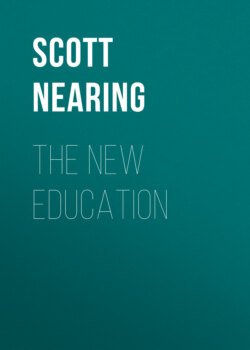Читать книгу The New Education - Scott Nearing - Страница 8
На сайте Литреса книга снята с продажи.
III A Word from Huxley and Spencer
ОглавлениеThese are typical of a host of similar criticisms of the schools which leading educators, men working within the school system, are directing against it. Out of the fullness of their experience they spread the conviction that the school often fails to prepare for life, that it frequently distorts more effectively than it builds. The thought is not new. Thomas Huxley asked, years ago, whether education should not be definitely related to life. He wrote—“If there were no such things as industrial pursuits, a system of education which does nothing for the faculties of observation, which trains neither the eye nor the hand, and is compatible with utter ignorance of the commonest natural truths, might still be reasonably regarded as strangely imperfect. And when we consider that the instruction and training which are lacking are exactly those which are of most importance for the great mass of our population, the fault becomes almost a crime, the more so in that there is no practical difficulty in making good these defects.”[9]
Approaching the matter from another side, Tyler puts a pertinent question in his “Growth and Education—” “In the grammar grade is learning and mental discipline of chief importance to the girl, or is care of the body and physical exercise absolutely essential at this period? No one seems to know, and very few care. What would nature say?”[10]
Herbert Spencer answers Tyler’s question in spirited fashion. “While many years are spent by a boy in gaining knowledge, of which the chief value is that it constitutes ‘the education of a gentleman;’ and while many years are spent by a girl in those decorative acquirements which fit her for evening parties; not an hour is spent by either of them in preparation for that gravest of all responsibilities—the management of a family.”[11] “For shoe-making or house-building, for the management of a ship or a locomotive-engine, a long apprenticeship is needful. It is, then, that the unfolding of a human being in body and mind, may we superintend and regulate it with no preparation whatever?”[12]
One fact is self-evident—the existence of a body of criticism and hostility is prima facia evidence of weakness on the part of the institution criticised, particularly when the criticism comes strong and sharp from school-men themselves. The extent and severity of school criticism certainly bespeaks the careful consideration of those most interested in maintaining the efficiency of the school system.
